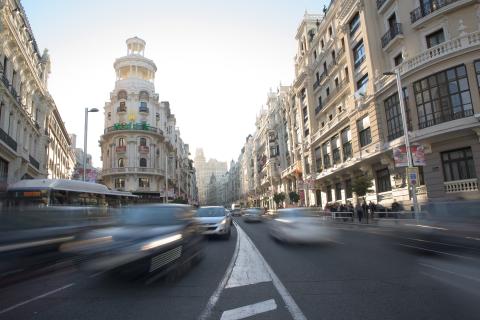
The Executive’s decision to bring forward the general elections means much more than the fact that all Spaniards are called to vote on July 23rd. That it is necessary to elect a government again means that, until the new one is proclaimed, the Cortes are dissolved and, with them, all the laws and decisions that were to be voted on in the coming weeks are paralyzed.
In what directly affects drivers, the Mobility Law is waiting and, with it, controversial issues such as tolls in cities, that is, the rate that municipalities could enable to demand payment from those drivers who want to drive. through restricted areas.
Laws on hold due to early elections
The call for general elections paralyzes the processing in Congress and the Senate of all legislative initiatives, whether they are bills, bills or any other regulation. Some will remain in force in the form of a decree law, others remain on hold pending the formation of the new Government and it is this that adopts the appropriate decisions.
As of today, there are more than 60 laws that will remain pending voting and whose application could be postponed for months, including those known as the Family Law, the Housing Law, the Parity Law and the Mental Health Law. The Sustainable Mobility Law and the extension of the anti-crisis measures that, in principle, end on June 30, are also suspended.
Sustainable Mobility Law
Of all the laws that will have to wait in the drawer to be approved, the one that affects drivers the most is that of Sustainable Mobility. Validated as a Bill in December 2023, the vote was scheduled to take place in Congress in the coming weeks.
This Bill arises with the objective of creating a regulatory framework to create public transport policies that promote “clean and healthy mobility understood as a social right”. Among others, it introduces the following novelties:
- Creation of a toll in the cities (we go into detail in the next lines)
- Obligation for companies with more than 500 employees to create a sustainable mobility plan to work, promoting the use of public or shared transport, electric vehicles and other non-polluting transport alternatives such as bicycles
- Establishment of the National Sustainable Mobility System as an ecosystem that facilitates collaboration between administrations
- Advances in legislative matters to start autonomous driving tests in open spaces
- Expansion of the so-called safe school routes that allow children to walk to school safely
- Improvement of publicly available information on charging infrastructure for electric vehicles, such as the interactive map of chargers
Tolls in the cities
The Sustainable Mobility Law seeks to give a new vision of mobility in cities that prioritizes walking and cycling instead of resorting to private transport. To this end, the bill approved by the Council of Ministers at the end of 2022 speaks of “providing attractive alternatives to the private vehicle both in the urban area and in the whole territory”.
It also sets among the objectives “to facilitate the provision of flexible mobility solutions, from traditional transport services to new mobility services, such as public transport on demand, private collaborative mobility or shared mobility systems”.
One of the most controversial measures contemplated within the Sustainable Mobility Law are tolls in cities, with which it is intended to reinforce the role of Low Emission Zones (ZBE).
In this sense, it is important to clarify that ZBEs are not suspended; neither is the obligation of municipalities with more than 50,000 inhabitants to create restricted traffic areas based on polluting emissions (on this map you can see which ones are already active and their restrictions) since this is included in the Climate Change Law that already be in force.
What remains in the air is the authorization so that the Town Halls can establish a rate for the circulation of vehicles in the LEZs. “To create this rate, an authorization with the force of law is necessary, which makes it possible to guarantee that the basic conditions are homogeneous throughout the territory, although each municipality may decide whether to implement the rate or not,” official sources explain.
If not now when?
It is not possible to set a date for voting on the new laws. The official calendar establishes that one month after the elections the Congress of Deputies is constituted and the president of the Chamber is appointed by vote. This is in charge of communicating to the King the parliamentary formations.
If there is an agreement between the political forces, the full investiture of the new Prime Minister is held a few days after the King has finished the round of meetings with the leaders of all the political parties. The candidate who achieves an absolute majority (176 deputies) or a simple majority (more votes in favor than against) in a second round to be held 48 hours later is appointed president.
Taking into account that the elections are held on July 23 and without being able to anticipate what will be the order of priority in the approval of laws of the new Government, it is very possible that we will not talk about the Sustainable Mobility Law and tolls in cities again until well entered 2024.

